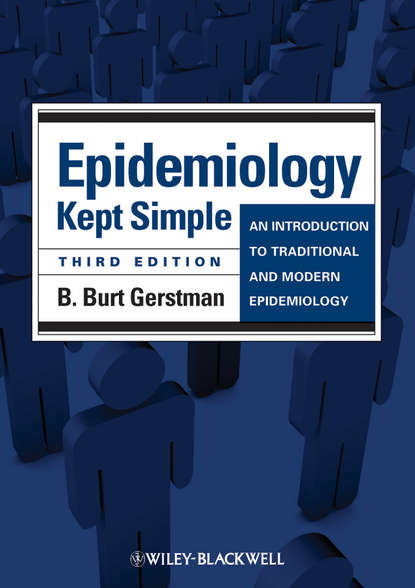
Epidemiology Kept Simple. An Introduction to Traditional and Modern Epidemiology скачать fb2
B. Gerstman Burt - Epidemiology Kept Simple. An Introduction to Traditional and Modern Epidemiology краткое содержание
Epidemiology Kept Simple introduces the epidemiological principles and methods that are increasingly important in the practice of medicine and public health. With minimum use of technical language it fully explains terminology, concepts, and techniques associated with traditional and modern epidemiology. Topics include disease causality, epidemiologic measures, descriptive epidemiology, study design, clinical and primary prevention trials, observational cohort studies, case-control studies, and the consideration of random and systematic error in studies of causal factors. Chapters on the infectious disease process, outbreak investigation, and screening for disease are also included. The latter chapters introduce more advanced biostatistical and epidemiologic techniques, such as survival analysis, Mantel-Haenszel techniques, and tests for interaction. This third edition addresses all the requirements of the American Schools of Public Health (ASPH) Epidemiological Competencies, and provides enhanced clarity and readability on this difficult subject. Updated with new practical exercises, case studies and real world examples, this title helps you develop the necessary tools to interpret epidemiological data and prepare for board exams, and now also includes review questions at the end of each chapter. Epidemiology Kept Simple continues to provide an introductory guide to the use of epidemiological methods for graduate and undergraduate students studying public health, health education and nursing, and for all practicing health professionals seeking professional development.
Чтобы оставить свою оценку и/или комментарий, Вам нужно войти под своей учетной записью или зарегистрироваться



